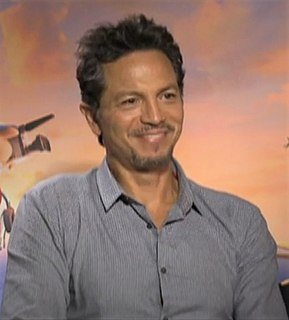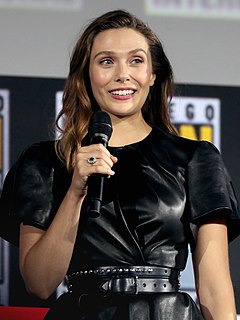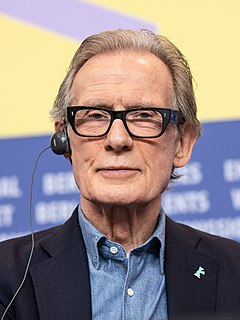A Quote by Benjamin Bratt
Well, for me, the real excitement of doing physical things in films, whether you're talking about a fight scene or a stunt sequence or even a love scene, for that matter, is by necessity it has to be choreographed very much like a dance. That being said, you have to rehearse it over and over again and find a mathematical precision.
Related Quotes
Some things definitely work better on film than in books. Introspection is great in books but it doesn't work on film. Anything with high intensity, whether it's a love scene, a car chase, a fight scene - those things work so well on film and oftentimes they can tell a much broader part of the story.
Probably the most difficult scene to film was the one where I'm attacked. I haven't thought about it in a while because, in hindsight, you make jokes about it and you get funny stories from it. When I was talking about it earlier today, I started to realize that it took a couple days probably to get over. Even if you can laugh about it, it's still the physical things that your body has to go through, it's pretty insane.
I don't think that any scene [in Pineapple Express] is word for word how you'd find it in the script. Some of it was much more loose than others. The last scene with me, Danny [McBride] and James [Franko] in the diner - there was never even a script for that scene. Usually we write something, but for that scene we literally wrote nothing.
You'll still work with some directors where that doesn't happen, and sometimes it's out of necessity because you're in a really complicated, choreographed fight scene and the whole thing is being prevised in a computer, so it's been decided months before, but I think that's sneaking into the way action scenes are shot.
Improvisation in general is good, and improvising material into themes, turning the material into something codified and repeatable, taught me scenic structure and dramatic gambits that work and things that are appealing both as a performer and an audience member, like you know, what does "want" really mean in a scene, and how do you achieve your want, and how is that expressed, and how do you achieve closure? Those are all things that I learned performing at the cabaret after just doing the same scenes over and over and over again over the years, with my own ability to change.
have a much harder time writing stories than novels. I need the expansiveness of a novel and the propulsive energy it provides. When I think about scene - and when I teach scene writing - I'm thinking about questions. What questions are raised by a scene? What questions are answered? What questions persist from scene to scene to scene?
Whether it's one scene or 15 scenes in a film, whether it's the lead or a cameo part, if I don't find it interesting, I tend not to do it. You never really know what it is. It could be a one-scene part. I remember I read the one scene in Crash and was asked to do it. I was like, "Absolutely!" There's no formula for how something has to be. I always try to keep it that way.
I really love it, I love working with directors that are very collaborative and allow me input. I've done over 75 films, it's just like you're an apprentice. You learn so much about camerawork, lenses, and I'm always talking about DPs and directors and they always give me lists. I think pretty soon, I'll be ready to move away from being in front of the camera.
I don't need to go over a fight scene a million times. I got it. It comes very naturally to me to do that. And our industry is a little more physical than I think some people know, with regard to how much contact is made between WWE Superstars when we're wrestling a match. Whereas on set, sometimes actors aren't familiar with that sort of physicality.




































